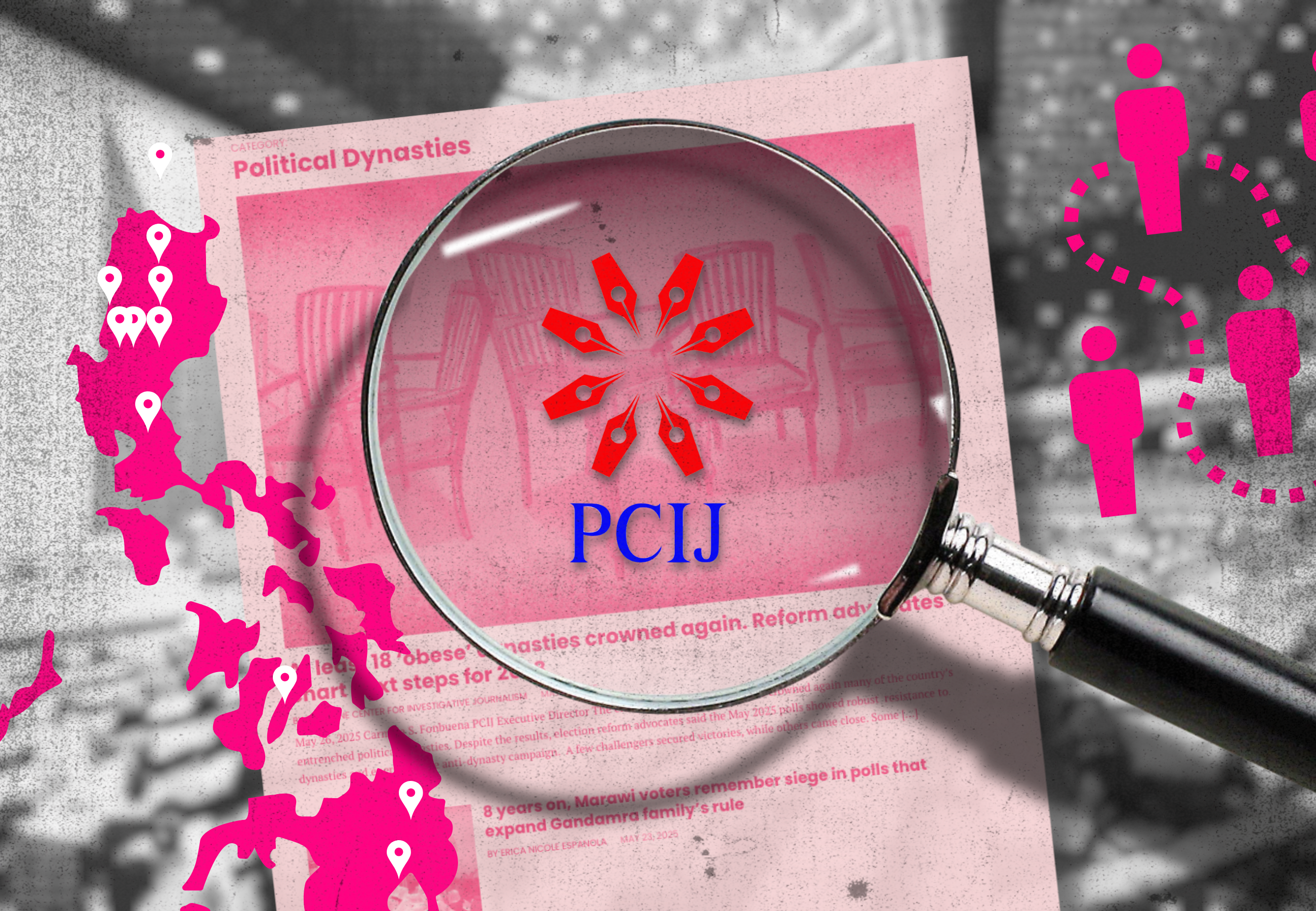PCIJ maps out mid-term electoral outcomes for political dynasties

CHEERS TO the Philippine Center for Investigative Journalism (PCIJ) for mapping dynastic rule in Philippine politics as reflected in the midterm elections. A folio of articles posted from May 13 to 27 tracked the wins and losses of political clans and their hold on power over municipalities and cities in various provinces in the country.
The reports did not apply the usual thematic frame of the midterm vote as a referendum of the incumbent administration. Rather, PCIJ focused on the retention or rejection of forces of political control more closely affecting the people, the ruling families who have held control of public life in the provinces where the majority of Filipinos live and vote.
Dynastic grip through and through
PCIJ counted at least 18 families whose respective members won at least 5 seats in the national and local races. The reports identified the “obese” dynasties or families with at least five members elected in office: the Singsons of Ilocos Sur, Marcos-Romualdez clans of Ilocos Norte and Leyte, and the Dutertes of Davao City, among others.
PCIJ also called attention to lesser-known dynasties in provinces, revealing the rotation of public office at this level as a family affair. The role of dynasties at this level should be subjected to the same kind of public scrutiny applied to national officials, as local government officials more directly affect the quality of life at the grassroots.
Growing sentiment against dynasties
PCIJ noted the dynastic losses of four gubernatorial candidates: Gwen Garcia of Cebu, Peter Cua of Catanduanes, Ruth Hernandez of Laguna, and Lord Allan Jay Velasco of Marinduque. The report also stated that dynasties do not rule in the capitol of Batanes, Nueva Vizcaya, Benguet, Ifugao, Kalinga, Bulacan, and Agusan del Sur.
The Constitution prohibits political dynasties, but so far, the lack of an enabling law has restrained its enforcement. Bills against political dynasties remain stalled in Congress.
PCIJ’s reports showed that, even without a law, it is possible for dynasties to be toppled. Its review of the May ballot has shown the people’s rejection of entrenched political families in some areas of the country.
Media should apply this lens in its news coverage in order to expand its scope. The developments outside of Metro Manila should gain more significant coverage. Given the impetus of the May vote, journalists should expand the discourse initiated by PCIJ findings – to help voters evaluate the impact of political families on national governance and on Philippine democracy.
Leave a Reply